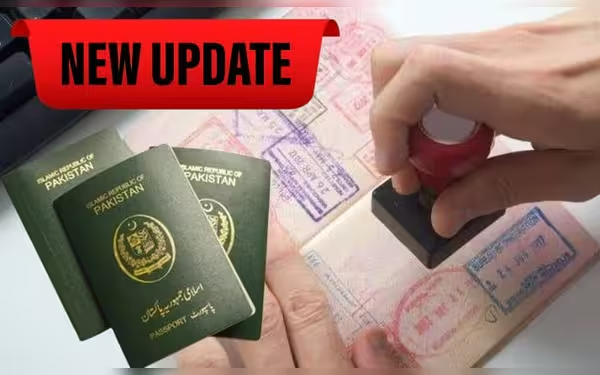Saturday, November 16, 2024 05:31 PM
UAE Visa Rejections: The Role of Pakistani Social Media Influencers
- UAE Consul General cites online criticism as a reason for visa denials.
- Social media influencers impact public perception and diplomatic relations.
- Constructive criticism is essential for responsible expression.
 Image Credits: pakobserver.net
Image Credits: pakobserver.netUAE visa rejections for Pakistanis rise due to online criticism, prompting a debate on the responsibility of social media influencers.
In recent times, many Pakistanis have encountered difficulties in obtaining visas to the United Arab Emirates (UAE). This issue has become a significant concern, especially for those who wish to travel for work, tourism, or family visits. The Consul General of the UAE has shed light on a new reason behind these visa rejections, which has sparked a debate among social media users and influencers.
According to the Consul General, complaints have been received regarding the online criticism directed at the regulations of other countries, including the UAE. This behavior has been labeled as "unacceptable" and is believed to contribute to the increasing number of visa denials faced by Pakistani applicants. The Consul General's remarks suggest that the way individuals express their opinions on social media can have real-world consequences, particularly when it comes to international relations and travel.
Social media influencers, who often have a large following, play a crucial role in shaping public opinion. Their posts and comments can influence how people perceive different countries and their policies. When influencers engage in negative discussions about the UAE or its visa policies, it may not only affect their followers' views but also lead to diplomatic tensions. This situation raises an important question: Are Pakistani social media influencers inadvertently contributing to the visa rejection crisis?
It is essential for influencers to recognize the power of their words. While freedom of expression is a fundamental right, it comes with responsibilities. Constructive criticism is vital for progress, but it should be balanced with respect for other nations and their regulations. Influencers should consider the potential impact of their statements, especially when discussing sensitive topics like immigration and travel.
The ongoing issue of UAE visa rejections for Pakistanis highlights the interconnectedness of social media and international relations. As the Consul General pointed out, the online behavior of individuals can have tangible effects on diplomatic ties and travel opportunities. It is crucial for social media influencers to use their platforms wisely, promoting understanding and respect rather than negativity. By fostering a more positive dialogue, they can help pave the way for smoother travel experiences for their fellow citizens.













